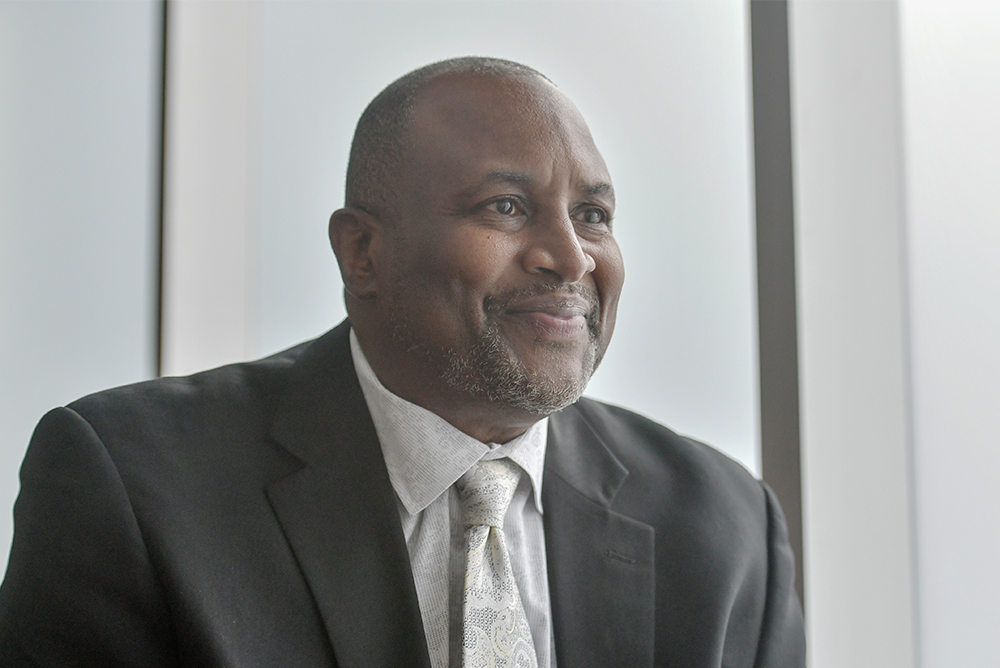
Photo by Brandon Dill.
Andre E. Johnson is the Benjamin W. Rawlins Professor of Communication at the University of Memphis. Before joining Zócalo at the Lorraine Motel in Memphis for “Why Isn’t Remembering Enough to Repair?”—the third public program in our two-year events and editorial series, “How Should Societies Remember Their Sins?,” presented in partnership with the Mellon Foundation—he shared stories in the green room about mentorship, preaching, and wide-open Saturdays.
You were born and raised in Memphis. What was one of your favorite places to go growing up here?
The Boys Club—now the Boys and Girls Club. That’s where I learned how to play all kinds of games. I played soccer at the Boys Club. I learned how to use a fork and knife at the Boys Club. Those types of things. And just to have mentors that were our staff members who looked after us and cared enough about us to teach us certain things. It was great.
What’s your hidden talent?
I haven’t done it in a while but I’m a DJ. That’s how I earned extra cash in college. Old-school turntables, 12-inches.
Where can we find you on a typical Saturday?
Either at my home chilling or every now and then, you might find me out on the golf course, if I can find somebody to come and play. Saturday mornings I’m working on my sermon for the next day. And then I’m just hanging out. No plans, really. Saturdays are wide open.
When you think about writing a sermon, what goes into it?
We don’t got that much time! [Laughs] Trying to discern what it is that I need to say. And trying to figure out once I know what I’m gonna say, how am I gonna say it? How am I going to put it together, arrange it, and all that. What kind of stylistic features do I want to use? Do I want to do a lot of repetition, use you know, parallelism? Bringing some stuff back into memory because I’m a manuscript preacher, so I’ve got a text in front of me, but I never, never use it word for word. And then the delivery, you know, how powerful do I want this to be. But the first part—the sermon—meditating, thinking about stuff going on in the world, stuff going on in our city—it comes. It really comes. And by Sunday, I’m ready.
You’re a rhetoric professor and a preacher. Do you see them as one and the same?
Everything I do is grounded in my faith. The faith produces all of this. I wouldn’t be a rhetoric professor, I wouldn’t be a community activist, a leader, I wouldn’t be any of those things if it weren’t for my faith.
Have you experienced a genuine effort to repair?
In small places, like institutions like colleges and universities, there was some effort to try to make amends, if you will. But on a larger scale, I have never been part of that, and maybe tonight will be the start of that.
You were the inaugural recipient of the American Society for the History of Rhetoric Outstanding Mentor Award last year. What does mentorship mean to you?
It is the catch and be-all. It is why I exist. The best way I can pay back my mentors is by giving it back to others. It’s something that I really take seriously. And I love doing it.



